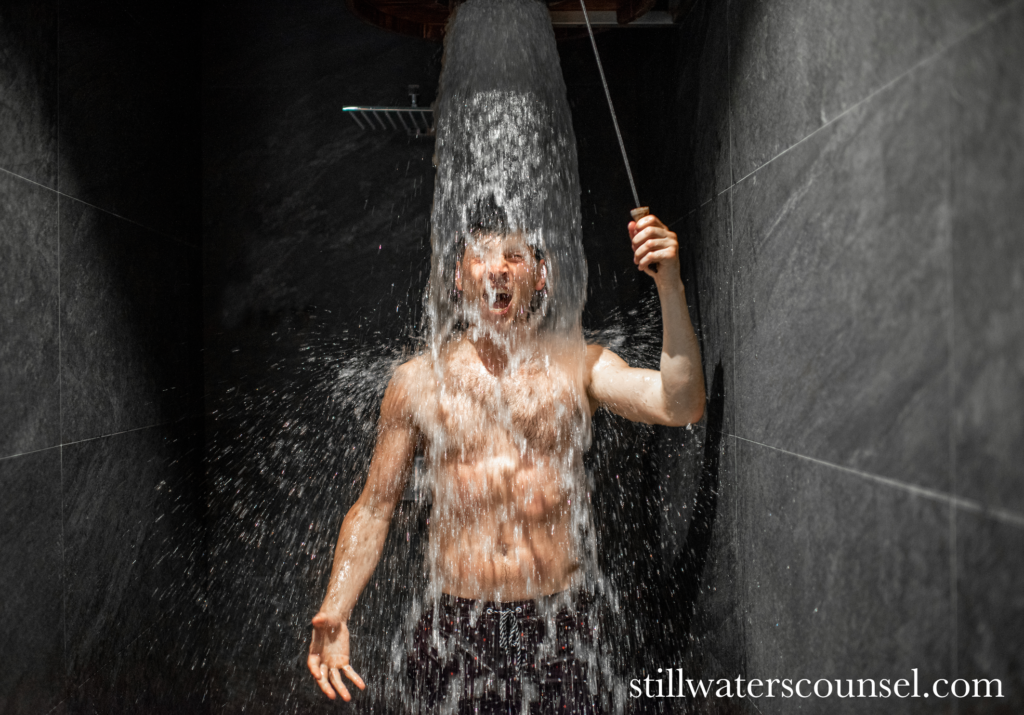Hydrotherapy, aka water therapy, aka balneotherapy, is the external application of water at different temperatures and in various forms for both physical and mental health benefits. The use of hydrotherapy dates back to ancient times, with cultures around the world using water for its therapeutic properties.
In the Western world, the use of water for therapeutic purposes has been documented in ancient Greek, and Roman civilizations. Hippocrates is thought to have used water for its healing properties. More recently, in the 19th century, hydrotherapy experienced a resurgence in popularity, particularly in Europe.
In the world of naturopathic medicine, Sebastian Kneipp (1821-1897) is credited with popularizing balneotherapy (a form of hydrotherapy that involves the use of mineral water). A Catholic priest who suffered from tuberculosis, Kneipp experienced therapeutic benefits of water after immersing himself in the icy Danube River. After this experience, Kneipp went on to develop a system of hydrotherapy that he called the “Kneipp Cure,” which involved the use of water, herbs, exercise, and diet to promote healing and prevent illness.
Today in the United States, naturopathic doctors make use of hydrotherapy for conditions as varied as chest colds to menstrual cramps to fevers. A deceptively simple therapy, ‘hydro’ is also used to treat arthritis, fibromyalgia, and chronic pain. Of course, it can also be used as an adjunctive treatment for mental health conditions such as anxiety, depression, and post-traumatic stress disorder (PTSD).

What is Hydrotherapy?
The type of hydro recommended will look different based on the needs of the patient. A few ways it is used include:
- Hot tubs and saunas
- Cold water plunges
- Showers/baths
- Water massage
- Aquatic exercise
- Constitutional hydrotherapy (a procedure of alternating hot and cold to the back and chest, with the application of Sine Wave therapy)
- ‘Warming socks’ (putting on damp socks covered with wool socks at bedtime)
Whatever the specific application, hydrotherapy is thought to be helpful fundamentally due to increased blood flow throughout the body. With improved blood flow, more oxygen and nutrients can reach tissues more readily, while waste products are efficiently carried away from cells. Hydro is also thought to modulate the immune system, supporting appropriate dispatch of white blood cells while reducing inflammation. More research is coming out about the mechanisms of why hydrotherapy works, including the role of heat and cold-shock proteins. For our purposes though, let’s dive a little deeper into why this matters for mental health.
1. Reducing Anxiety and Depression
Causes of depression are notoriously difficult to neatly pin down, but a few implicated processes include: altered blood flow, decreased ability of the brain cells to use available energy, and the ongoing feedback between the mind and body (heart beats fast, muscles feel tight: ANXIETY! Feeling sleepy and tense: DEPRESSION!) Because hydrotherapy helps to improve blood flow and relax the physical body, it can be very helpful in mitigating symptoms of anxiety and depression (see #2).
2. Promoting Relaxation
Hydrotherapy can promote relaxation by stimulating the parasympathetic nervous system, which is responsible for the body’s rest and digest response. This can help reduce stress and promote feelings of calm and relaxation. Also, if you happen to dump a generous amount of epsom salt into your bath water, you’ll get some trans-dermal (through your skin) absorption of magnesium, a key nutrient to promote muscle relaxation day to day.
3. Improving Sleep
Hydrotherapy can improve sleep quality by the mechanisms above, of course (see benefits of magnesium). Another component of the use of hydrotherapy (particularly warm baths/showers/sauna in the evening) is that it modulates core body temperature, which is key for regular circadian rhythms. Warm hydro in the evenings opens up peripheral blood flow, in turn lowering the core body temperature. Lower core body temperature = quicker to fall asleep, and easier to stay asleep.
4. Boosting Mood
Hydrotherapy can boost mood by increasing the production of endorphins, which are the body’s natural mood-boosting chemicals. Cold plunges in particular have an invigorating effect for a number of reasons. The mammalian diving reflex causes a decrease in heart rate, but simultaneously increases blood flow to the central nervous system and core of the body – read: it makes you feel calm and alert at once. Additionally, exposure to cold induces cold shock proteins, which support cellular function, including the protection and functioning of brain cells.
